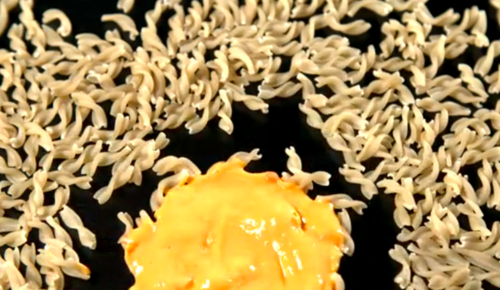VIDEO: for Food Additives, Corporations Decide What’s Safe to Eat
GRAS – ‘Generally recognized as safe’ sets a less-than-rigorous standard for common ingredients in packaged foods.
What if cars, airplanes, and buildings were subject to a regulatory code referred to as “generally recognized as safe”?
It’s not a phrase that instills confidence. Still, that’s the term affixed to the countless food additives we eat every day. And as if the name alone weren’t enough, the people making that vague designation don’t work for the Food and Drug Administration but are hired by private companies, as Marion Nestle, professor of food studies and nutrition at New York University, points out in a new video from the website OZY.

There are more than 10,000 food additives currently in use, and while many of them are harmless, studies have shown that isn’t always the case. One recent paper, for example, showed that common emulsifiers are linked with obesity and chronic digestive disorders. Furthermore, many GRAS food additives are banned outright in other countries.
But the system strongly favors corporations over consumers. As Nestle notes, a survey of the scientists in charge of granting GRAS status for new additives found that “100 percent of the people on the panels worked for the industry.”
With that being the case, the narrator notes, a company can get approval for a new additive in just mere months rather than years.
